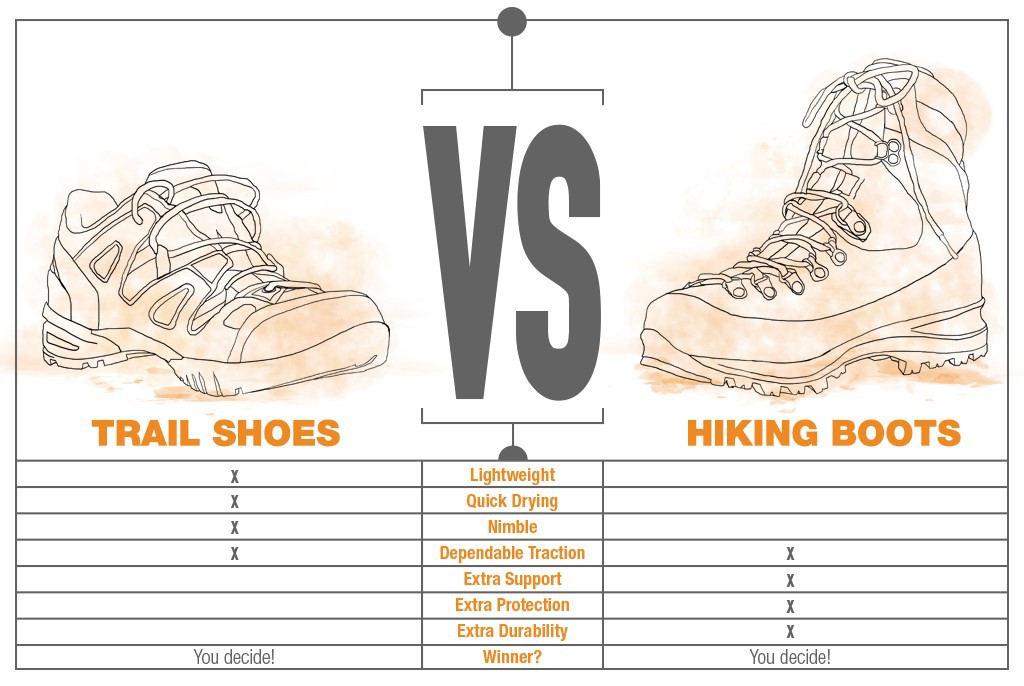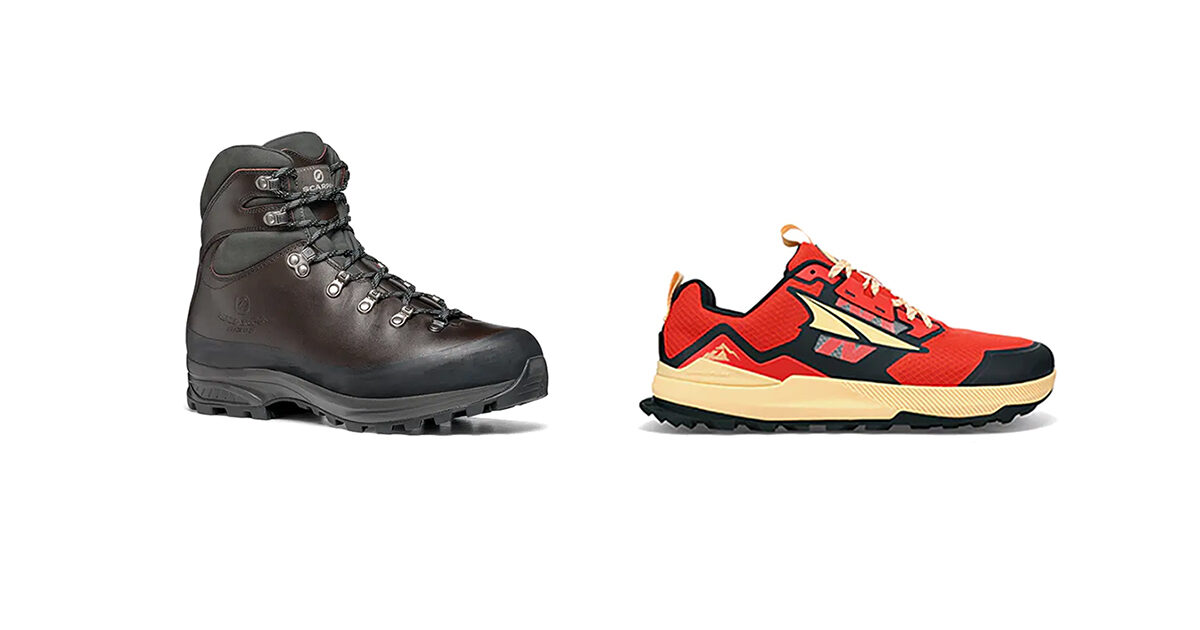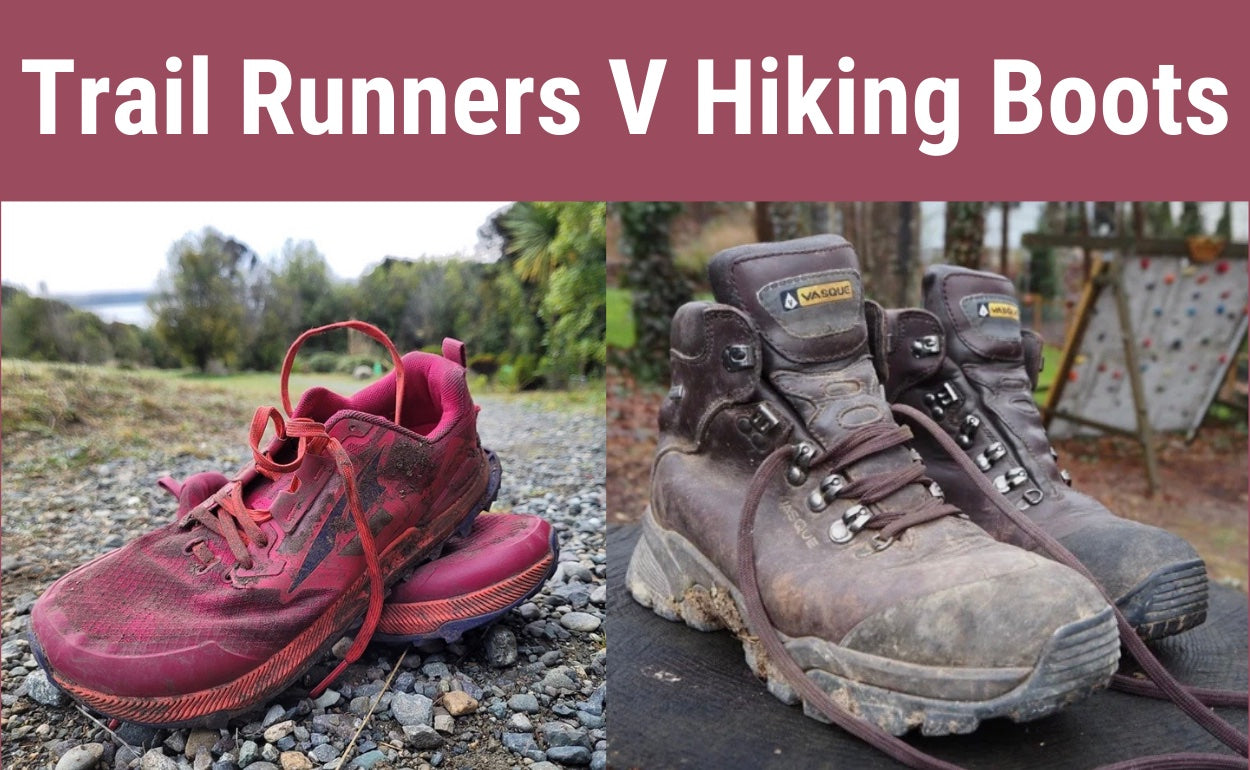When it comes to the great outdoors, choosing the right footwear can make all the difference in your experience. Many outdoor enthusiasts often find themselves weighing the options between trail shoes and hiking boots. Both categories have their distinct advantages, making the choice heavily dependent on the type of terrain, activity, and personal preference. This article delves into the intricacies of trail shoes and hiking boots, providing insights to help you make an informed decision for your next outdoor adventure.
Understanding Trail Shoes and Hiking Boots
What Are Trail Shoes?
Trail shoes are designed for running and walking on uneven terrain, providing a lightweight option that allows for greater agility and speed. They typically feature:
- Lightweight Construction: Made with breathable materials to keep feet cool and comfortable.
- Low Profile: Offers a closer-to-ground feel, improving balance and stability.
- Traction: Equipped with rugged outsoles that provide grip on various surfaces.
What Are Hiking Boots?
Hiking boots, on the other hand, are crafted for longer treks and rugged trails, offering enhanced support and protection. Key features include:
- Ankle Support: Often feature a higher cut to provide stability for the ankles.
- Durability: Constructed from robust materials designed to withstand rough conditions.
- Water Resistance: Many hiking boots come with waterproof features to keep your feet dry in various weather conditions.
Comparison of Trail Shoes vs Hiking Boots

| Feature | Trail Shoes | Hiking Boots |
|---|---|---|
| Weight | Lightweight | Heavier |
| Support | Minimal Ankle Support | Excellent Ankle Support |
| Traction | Good Traction | Superior Traction |
| Water Resistance | Varies by Model | Often Waterproof |
| Best Use | Trail Running, Short Hikes | Long Hikes, Rough Terrain |
Pros and Cons of Trail Shoes

Pros
- Lightweight and agile, making them ideal for quick maneuvers.
- Great breathability, perfect for warm weather.
- Versatile for various outdoor activities, including trail running.
Cons
- Less ankle support, which may not be suitable for all hikers.
- Less durable compared to hiking boots in extremely rugged conditions.
- Can be slippery on wet rocks or muddy terrain.

Pros and Cons of Hiking Boots
Pros
- Provides excellent support for the ankles, reducing injury risks.
- Highly durable and built for rugged terrains.
- Many models offer waterproof features for wet conditions.

Cons
- Heavier, which can lead to fatigue on long hikes.
- Less breathable, which may cause discomfort in hot weather.
- Longer break-in periods required for comfort.
Choosing the Right Footwear for Your Adventure

Consider Your Activity Level
Your choice between trail shoes and hiking boots largely depends on your planned activities. If you’re embarking on a multi-day hike with heavy gear, a sturdy pair of hiking boots would be beneficial. Conversely, if you’re planning a quick day trip or a trail run, trail shoes could offer the flexibility and comfort you need.
Evaluate Terrain Types
Understanding the terrain you’ll be navigating is crucial. Some shoes work better on specific surfaces:
- Rocky Trails: Hiking boots provide necessary stability and protection.
- Muddy or Wet Areas: Waterproof hiking boots typically outperform trail shoes.
- Dry or Hardpack Trails: Trail shoes can perform adequately.

Local Experiences and Recommendations
Outdoor enthusiasts in the USA often have their preferences shaped by local terrains. For instance:
- In mountainous regions like the Rocky Mountains, hikers often swear by sturdy hiking boots due to the variable weather and rugged trails.
- In areas like the Appalachian Trail, where trail running is popular, many opt for trail shoes for their lightweight and breathable characteristics.
Technological Innovations in Footwear

Modern Materials
Both trail shoes and hiking boots have evolved over the years with advancements in materials and technology:
- Gore-Tex: Commonly used in hiking boots for waterproofing.
- Mesh Fabrics: Found in trail shoes, allowing for better ventilation.
Isolation Technology
Many brands are now incorporating isolation technology, which provides additional cushioning and shock absorption in both trail shoes and hiking boots, enhancing comfort on rocky terrains.

FAQs: Trail Shoes vs Hiking Boots
1. Are trail shoes good for hiking?
Yes, trail shoes are suitable for hiking, especially on well-maintained trails and for short distances. However, for more rugged hikes, hiking boots may be preferable.
2. Can hiking boots be used for trail running?
While some hikers may choose to run in hiking boots, they are generally heavier and less responsive than trail shoes, which are specifically designed for running on trails.
3. How should trail shoes fit compared to hiking boots?
Trail shoes should fit snugly as they are designed for speed and agility; however, hiking boots should offer a little more room for toe movement, especially when going downhill.
4. What is the lifespan of trail shoes and hiking boots?
Typically, trail shoes have a shorter lifespan of about 300-500 miles, while hiking boots can last 500-1,000 miles depending on usage and care.
Conclusion
In the end, the choice between trail shoes and hiking boots depends on the activities you enjoy, the terrains you frequent, and your personal preferences. Understanding the unique benefits and drawbacks of each type of footwear can help you make better decisions for your outdoor adventures. Whether you find yourself sprinting through a forest trail or navigating a rocky mountain path, the right footwear will ensure a comfortable and safe experience.
For further reading, you can explore studies on outdoor footwear at ResearchGate and the latest in hiking gear technologies at ScienceDirect.